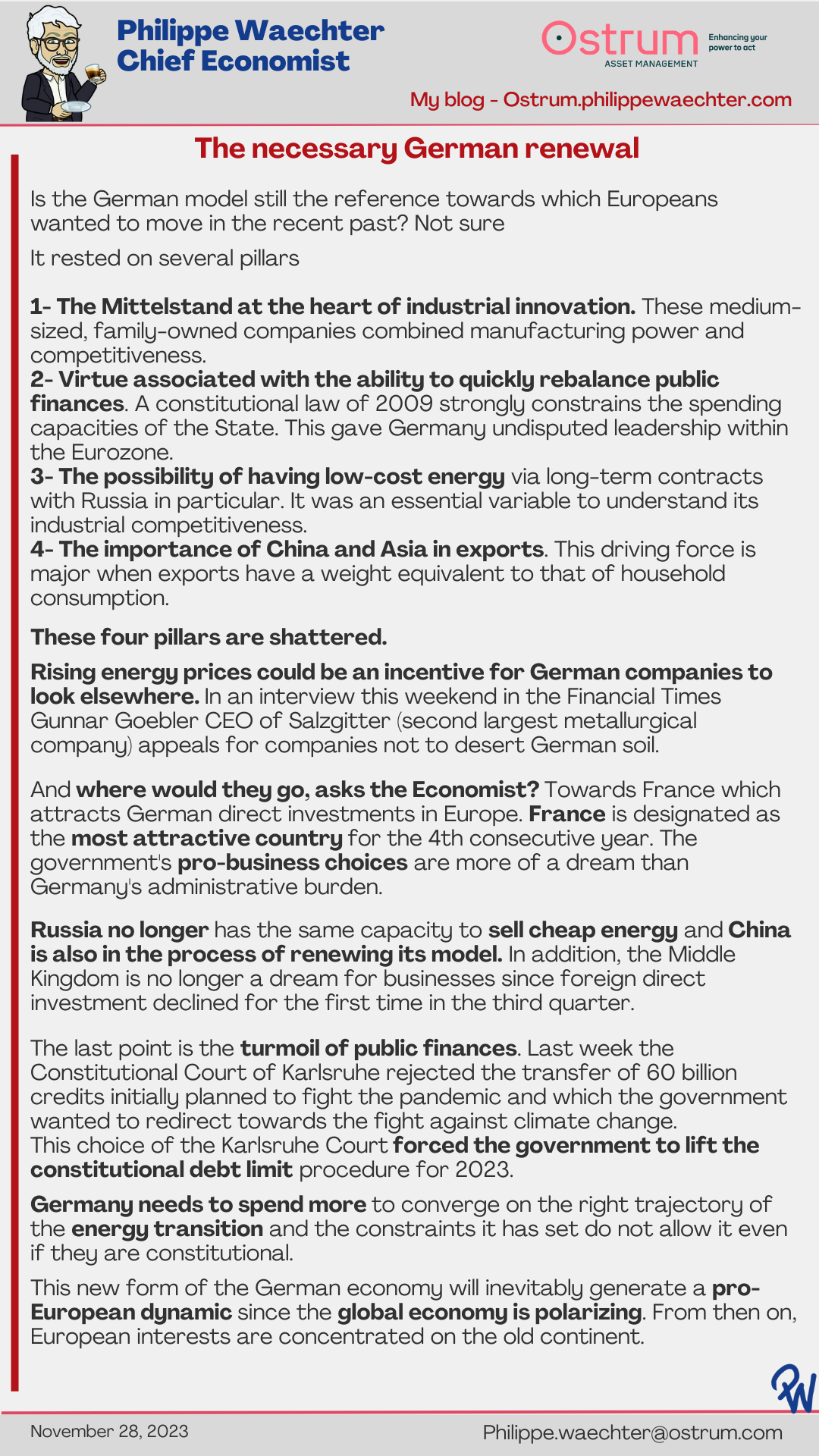The necessary German revival
Is the German model still the reference towards which Europeans wanted to move in the recent past? Not sure
It rested on several pillars
1- The Mittelstand at the heart of industrial innovation. These medium-sized, family-owned companies combined manufacturing power and competitiveness.
2- Virtue associated with the ability to quickly rebalance public finances. A constitutional law of 2009 strongly constrains the spending capacities of the State. This gave Germany undisputed leadership within the Eurozone.
3- The possibility of having low-cost energy via long-term contracts with Russia in particular. It was an essential variable to understand its industrial competitiveness.
4- The importance of China and Asia in exports. This driving force is major when exports have a weight equivalent to that of household consumption.
These four pillars are shattered.
Rising energy prices could be an incentive for German companies to look elsewhere. In an interview this weekend in the Financial Times Gunnar Goebler CEO of Salzgitter (second largest metallurgical company) appeals for companies not to desert German soil.
And where would they go, asks the Economist? Towards France which attracts German direct investments in Europe. France is designated as the most attractive country for the 4th consecutive year. The government's pro-business choices are more of a dream than Germany's administrative burden.
Russia no longer has the same capacity to sell cheap energy and China is also in the process of renewing its model. In addition, the Middle Kingdom is no longer a dream for businesses since foreign direct investment declined for the first time in the third quarter.
The last point is the turmoil of public finances. Last week the Constitutional Court of Karlsruhe rejected the transfer of 60 billion credits initially planned to fight the pandemic and which the government wanted to redirect towards the fight against climate change. This choice of the Karlsruhe Court forced the government to lift the constitutional debt limit procedure for 2023.
Germany needs to spend more to converge on the right trajectory of the energy transition and the constraints it has set do not allow it even if they are constitutional.
This new form of the German economy will inevitably generate a pro-European dynamic since the global economy is polarizing. From then on, European interests are concentrated on the old continent.
__________________________________
Philippe Waechter is chief economist at Ostrum AM in Paris




